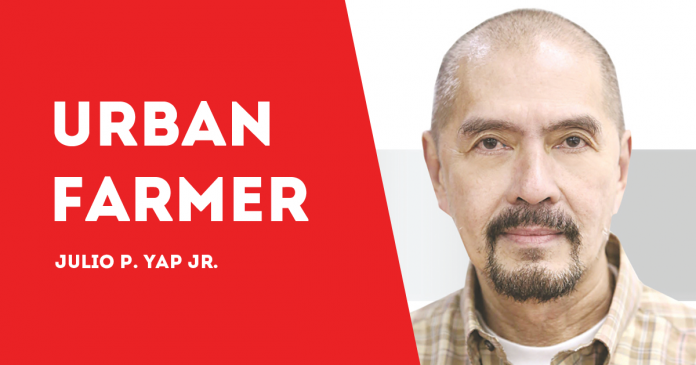
DURING discussions about farming, the question that is often asked is how good and healthier food can be produced at a lower cost and more affordable.
Instead of making good food cheaper, there is the need to analyse the circumstances to determine the actual cost of our meals in order not to starve the farmers and farmworkers, not to mention the status of our planet.
This is where organic farming comes in – because it can reduce the rising cost of cheap food.
In organic farming, the use of synthetic fertilizers can be eliminated – the chemical input that has been degrading farmlands, which also affects the water sources in the rural areas.
After all, organic soil health strategies show great promise for sequestering carbon, which can help mitigate climate change.
Organic farming can also reduce the high cost of cheap food that is being paid by our farmers, and rural communities.
When the consumers start paying a premium for quality-produced food, the farmers can receive a fair price for their hard work, which in turn has a multiplier effect in the rural areas.
It is vital to note that farmers and farmworkers can get their fair share of the premiums and that resources are available to help them transition to organic practices.
But the most important aspect is that organic farming can reduce the high cost of cheap food that we’re paying in the form of chronic disease and staggering health care expenses.
Organically-produced crops demonstrate higher levels of antioxidants – which is important for promoting health.
Organic farming can be a keystone piece of larger food sustainability because it is basically practicing agriculture without the use of toxic chemicals, at the same time promoting healthy farm ecosystems.
However, it is important to remember that we don’t have to be a farmer or a farmworker to be part of this solution.
If you have access to a community garden or a small space in your backyard, you can even grow organic food.
If your know someone, particularly the non-organic farmers, try to encourage them to give it a try, and let them know you’ll support them as a customer or a consumer.
Always remember that Filipino farmers are among the lowest income earners in the country.
On this note, interventions should be provided to the poor farmers, not only coming from the government but as well as from the private sector which has direct access in the rural communities.
Among the viable possibilities is farm tourism because the country offers so much potentials, which could generate jobs and of course income.
One such example is the concerted effort of Yamang Bukid Farm in Barangay Bacungan, Puerto Princesa, Palawan, where the lives and status of the local farmers have improved due to the opportunities which have been extended to them.
Since its creation just a few years ago, Yamang Bukid continuous to expand its operations in its effort of serving the community, and providing the needs of the tourists – both domestic and international./PN


